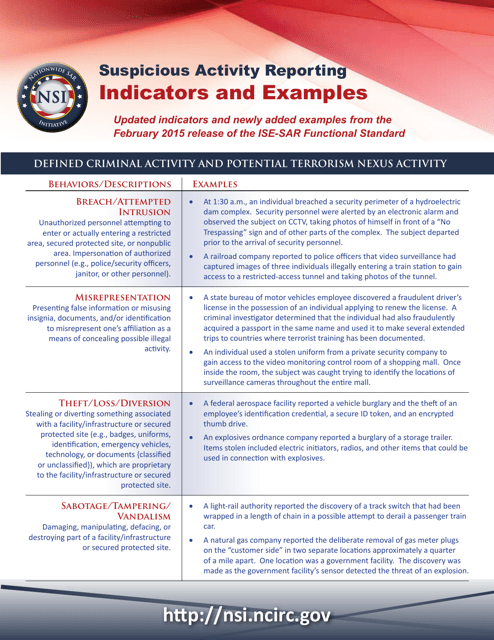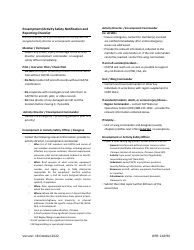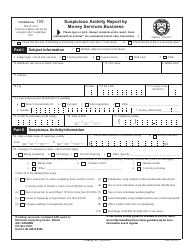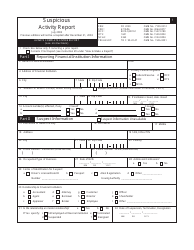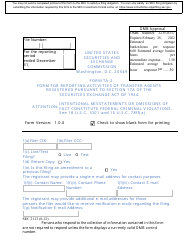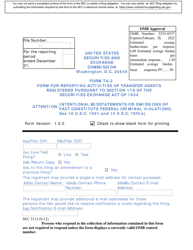Suspicious Activity Reporting: Indicators and Examples
Suspicious Activity Reporting: Indicators and Examples is a 4-page legal document that was released by the U.S. Department of Homeland Security on March 1, 2015 and used nation-wide.
FAQ
Q: What is Suspicious Activity Reporting?
A: Suspicious Activity Reporting (SAR) is the process of documenting and reporting suspicious activities that may be related to criminal or terrorist activities.
Q: Why is Suspicious Activity Reporting important?
A: SAR is important because it helps law enforcement agencies detect and prevent criminal and terrorist activities by identifying potential threats and gathering information that can be used in investigations.
Q: Who can submit a Suspicious Activity Report?
A: Anyone can submit a SAR if they observe or have information regarding suspicious activity. This includes individuals, businesses, and financial institutions.
Q: What are some indicators of suspicious activity?
A: Indicators of suspicious activity can include unusual behavior, suspicious transactions, surveillance, and attempts to conceal identity or assets.
Q: Can suspicious activity be reported anonymously?
A: Yes, SARs can be filed anonymously to protect the identity of the person reporting the activity.
Q: What happens after a Suspicious Activity Report is filed?
A: Once a SAR is filed, law enforcement agencies will review the information and may conduct further investigations if necessary.
Q: What should I do if I suspect suspicious activity?
A: If you suspect suspicious activity, you should report it to local law enforcement or the appropriate authorities. They will guide you on how to proceed.
Q: Are there any legal protections for reporting suspicious activity?
A: Yes, there are legal protections, such as immunity from civil liability, for individuals who report suspicious activity in good faith.
Form Details:
- The latest edition currently provided by the U.S. Department of Homeland Security;
- Ready to use and print;
- Easy to customize;
- Compatible with most PDF-viewing applications;
- Fill out the form in our online filing application.
Download a printable version of the form by clicking the link below or browse more legal forms and templates provided by the issuing department.
